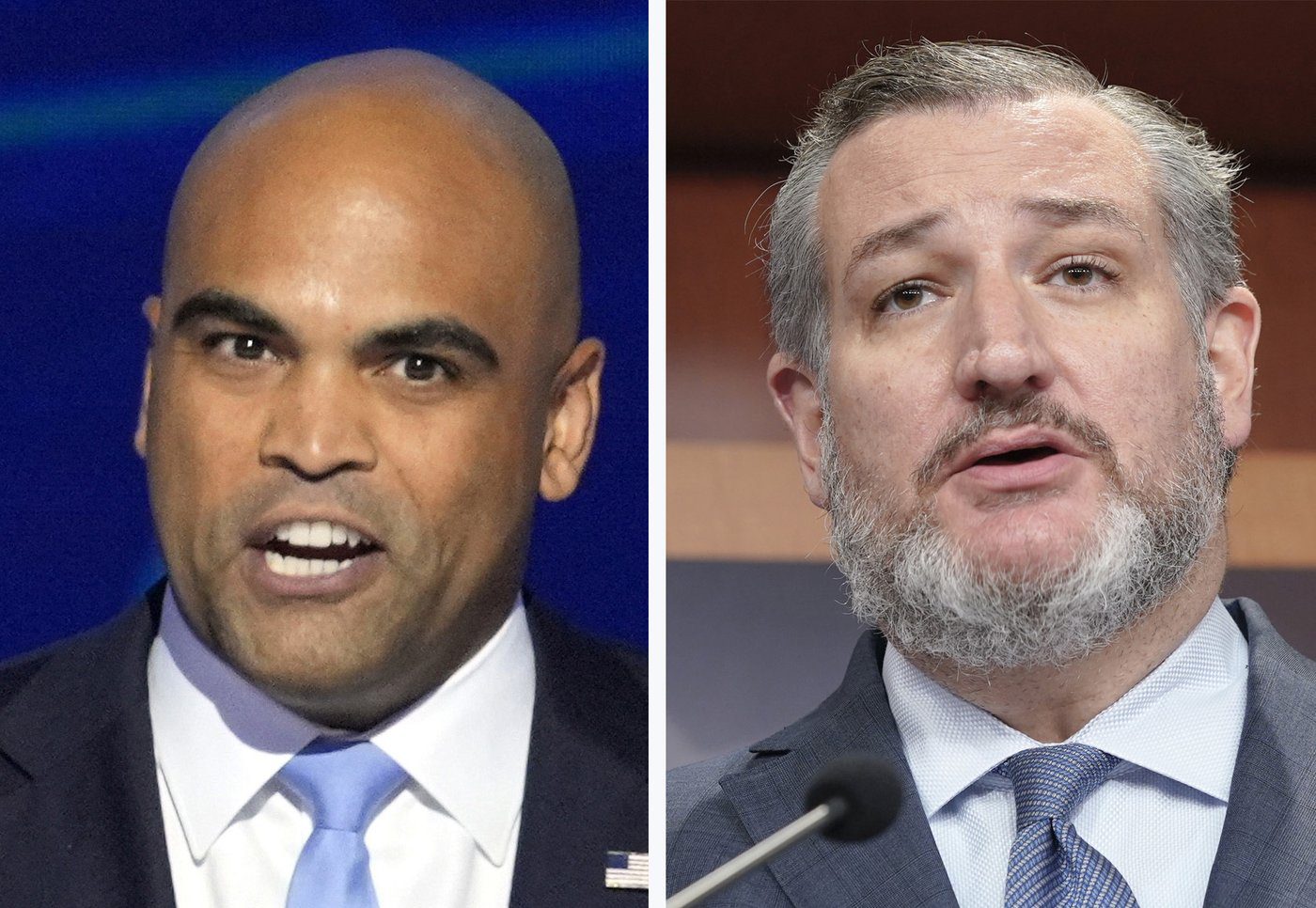DALLAS (AP) — Republican Sen. Ted Cruz and Democratic Rep. Colin Allred will meet Tuesday night in the only debate of their Texas Senate race that could help determine which party controls the U.S. Senate.
Nationally, Democrats view Texas as one of their few potential pickup chances in the Senate this year, while much of their attention is focused on defending seats that are crucial to their thin majority, including in Montana, Ohio and West Virginia.
Cruz has urged Republicans to take Texas seriously amid signs that he is in another competitive race. The last time Cruz was on the ballot in 2018, he only narrowly won reelection over challenger Beto O’Rourke.
The debate presents Allred, a three-term congressman from Dallas and former NFL linebacker, with a chance to boost his name identification to a broad Texas audience. Allred has made protecting abortion rights a centerpiece of his campaign and has been sharply critical of the state’s abortion ban, which is one of the strictest in the nation. The issue has been a winning one for Democrats, even in red states like Kentucky and Kansas, ever since the U.S. Supreme Court’s decision in 2022 to strip away constitutional protections for abortion.
Cruz, who fast made a name for himself in the Senate as an uncompromising conservative and ran for president in 2016, has refashioned his campaign to focus on his legislative record. He portrays his opponent as too liberal. Allred has meanwhile sought to flash moderate credentials and has the endorsement of former Republican U.S. Reps. Adam Kinzinger and Liz Cheney.
The two candidates alone have raised close to $100 million, according to the most recent reports from the Federal Election Commission. Tens of millions more dollars have been spent by outside groups, making it one of the most expensive races in the country.
Despite Texas’ reputation as a deep-red state and the Democrats’ 30-year statewide drought, the party has grown increasingly optimistic in recent years that they can win here.
Since former President Barack Obama lost Texas by more than 15 percentage points in 2012, the margins have steadily declined. Former President Donald Trump won by 9 percentage points in 2016, and four years later, won by less than 6. That was the narrowest victory for a Republican presidential candidate in Texas since 1996.
“Texas is a red state,” said Mark Jones, a political science professor at Rice University in Houston. “But it’s not a ruby-red state.”
Sean Murphy, The Associated Press





